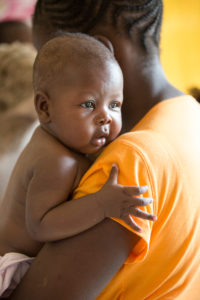The integrated community case management (iCCM) of common killers of children under five (diarrhea, pneumonia and malaria) has been implemented in many low-income countries to increase access to treatment and prevent child deaths. iCCM, which has been hailed as a successful strategy by the WHO and UNICEF, involves the delivery of timely and low-cost interventions against these illnesses at the community level by community health workers (CHWs). However, opponents of community case management claim that there is an increased risk of antimicrobial resistance that comes with increased availability of antibiotics and antimalarial medicines. They assert that the handling antibiotics and other medicines at the community level by CHWs will propagate poor medicine use practices, thus increasing resistance patterns.

However, even if community agents are provided with antibiotics and antimalarials as part of a formal iCCM strategy, we know that in many countries, they are not the only source of such products at the community level. There are a myriad of other informal providers, itinerant sellers, market stalls, kiosks and shops from where antibiotics and antimalarials—often of dubious quality—can be obtained.
In fact, efficiently implemented iCCM can reduce the likelihood of increasing antimicrobial resistance. If iCCM is provided by trained, equipped, and supervised CHWs, the use of antimalarials and antibiotics for pneumonia is improved. Properly trained CHWs adhere to approved treatment guidelines, and so the proportion of cases appropriately treated increases. One study notes that the “high adherence to ACTs provided by CHWs gave reassurance that community-based interventions did not increase the risk of drug resistance”. Additionally, the implementation of iCCM can improve the use of quality antibiotics and antimalarials as medicines are procured through appropriately controlled national or partner procurement mechanisms aimed at assuring quality. It thus can be expected that iCCM will reduce the likelihood of development of resistance in malaria parasites and bacteria.
SIAPS supports the implementation of iCCM through interventions at the global level, providing assistance to technical working groups and producing guidance documents, and also provides country-level support in Burundi, DRC, Guinea and Mali. SIAPS has provided support in the policy environment at the national level as well as in implementing strategies, providing training, and producing documents. Additionally, SIAPS is providing more peripheral support in countries to implement supply-chain-focused interventions to ensure the availability of commodities, and is also helping to ensure the rational use of commodities through the implementation of treatment protocols, job aids, training and supervision.
Author: Jane Briggs, Principal Technical Advisor, SIAPS

